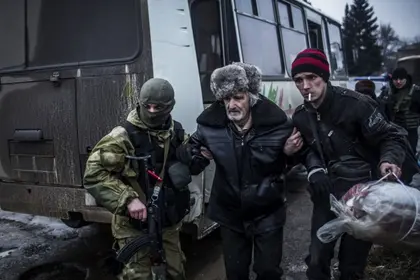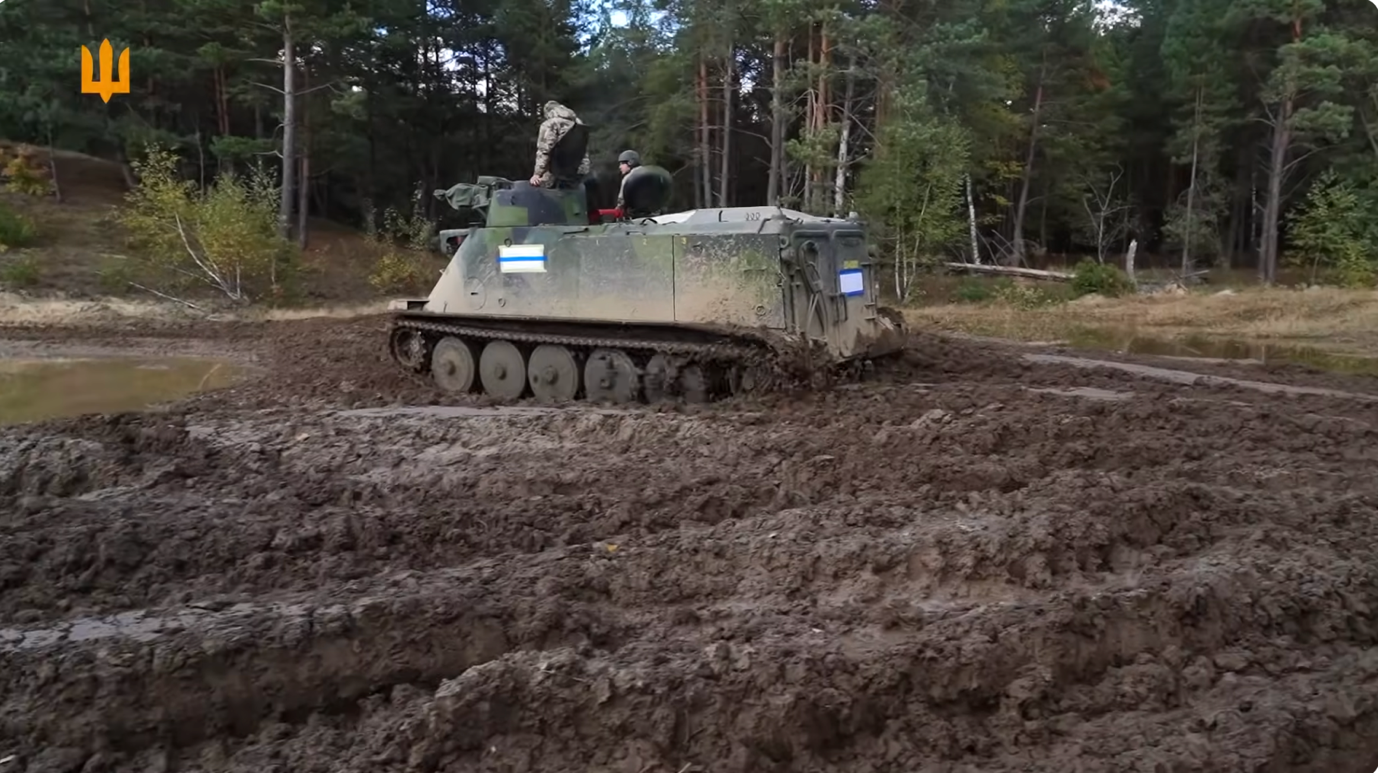It started with a smattering of rockets, dropping about a kilometer away from the center with a series of dull booms and leaving dense plumes of smoke behind them. Within minutes, salvos of missiles were smashing down all over the city and its strategic rail and road junction, sending terrified residents diving once more into their basements.
“The situation in Debaltseve is catastrophic,” said Joanne Mariner, senior crisis response adviser at Amnesty International. “I have spoken to many elderly people who are confined to their basements, living in extremely dire, overcrowded conditions, in absolute fear. Many told me how they felt completely lost, not knowing what to do. Shelling is constant. These people are at the mercy of forces they have absolutely no control over.”
JOIN US ON TELEGRAM
Follow our coverage of the war on the @Kyivpost_official.
Russian-backed gunmen were supposed to have agreed a cease-fire with pro-Kyiv forces for Feb. 3, in order to allow civilians to flee the encircled city along the one Ukrainian-controlled road in and out of Debaltseve.
While shelling did ease in the morning, by 1 p.m. fighting had broken out with a greater intensity than ever. Hundreds of rockets and shells fell indiscriminately on schools, shops and apartment blocks, with insurgents seemingly intent on destroying every building in the town, once a thriving railway-based community of 25,000 people.
A paltry government-sponsored evacuation effort, now boosted by the efforts of Ukrainian volunteers, has managed to evacuate more than a thousand civilians from the town, but a few thousand still remain.
“The city may look deserted, but there are still many people here – they are all hiding in their basements,” said a man, 50, who only identified himself as Alexander. “I’m not leaving, where can I go? I have no money and I need to look after my parents, they are too old and too sick to move.”
One family huddled in the doorway of their apartment, screaming and crying as buildings disintegrated under the force of Grad rockets just a few hundred meters away. Avid watchers of Russian television, they had moved into their basement out of fear that the volunteers trying to persuade them to leave wanted to steal their possessions.
“They drive people away from here. And then they steal everything from the apartments of the people who have left and send it to western Ukraine,” wept one mother as she clutched her young son.
“They steal it and send it through ‘Nova Poshta’ mail to western Ukraine, to Banderivschina [supporters of Stepan Bandera, the early 20th century nationalist leader],” screamed another over the earth-shattering noise of nearby incoming shells. “So now we live here [in the basement]. We put all the beds here. Show this to [President Petro] Poroshenko! We are so tired!”
The city’s remaining residents have lived for more than a week without heating, electricity or running water, and a dwindling food supply. They lack medical care after the city’s hospital staff fled on Jan. 23, leaving only the head doctor to provide basic first aid.
International aid organizations have also been unable to provide aid, with Stephane Prevost, head of the Médecins Sans Frontières mission in Ukraine, saying: “We are doing all we can to give further support to the remaining hospital staff in Debaltseve, but intense fighting is preventing our team from reaching the town.”
Ukrainian tanks, Uragan rocket launchers and armored personnel carriers could be seen maneuvering all along the road between Artyomovsk and Debaltseve after Kyiv sent massive reinforcements to its beleaguered troops there, but explosions either side of the road made it clear that troops had not yet managed to push Kremlin-backed forces out of artillery range.
Ukraine’s Ministry of Foreign Affairs blamed Russia for the failure of the most recent peace talks in Minsk on Jan. 31, demanding Moscow give an official response for the setback.
“We continue to expect an official response from Russia, as one of the signatories to the Minsk agreements, to this actual failure of the consultations,” ministry spokesman Yevhen Perebyinis said. “The absence of condemnation of terrorists and practical steps, suggest, unfortunately, the lack of Russia’s real interest in the peaceful settlement of the situation in Donbas.”
Kyiv Post editor Maxim Tucker can be reached at [email protected] or via Twitter @MaxRTucker
Editor’s Note: This article has been produced with support from www.mymedia.org.ua, financially supported by the Ministry of Foreign Affairs of Denmark, and implemented by a joint venture between NIRAS and BBC Media Action. Content is independent of the financial donor.
You can also highlight the text and press Ctrl + Enter




